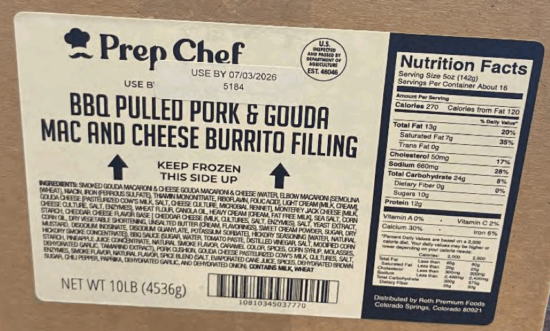Rich’s Ice Cream is recalling 110,292 cases of ice cream bars and frozen treats because they might be contaminated with Listeria, according to the Food and Drug Administration.
“Our products are available in schools and on street vending trucks aka ‘the ice cream man’ all across the country,” the FAQ page on Rich’s Ice Cream website says. “At this time, we ship only to large wholesale ice cream distributors all over the U.S. These distributors then sell our ice cream to schools and businesses in their local market.”
Those distributors are in Florida, where Rich’s is based in West Palm Beach; California; Missouri; Texas; South Carolina; Pennsylvania; Georgia; Illinois; Alabama; Arizona; Iowa; Massachusetts; Louisiana; Nebraska; Nevada; New York; New Jersey; Ohio; Oregon; Oklahoma; Tennessee; Virginia; Wisconsin; and the Bahamas including Nassau.
Lot No. 24351 through 25156 of the following individually packed treats and ice cream bars are recalled. Throw away any of these bars if they’re in your freezer:
Chocolate Crunch Cake Bar
Strawberry Shortcake Bar
Rich Bar
Crumbled Cookie Bar
Orange Cream Bar
Fudge Frenzy Bar
Cotton Candy Twirl Bar
Savagely Sour BlueRaspberry Bar
Savagely Sour Cherry Bar
Cool Watermelon Bar
Rich’s informed the distributors about the June 27 recalls, but didn’t issue information for the public, only to its wholesale customers.
About Listeria infections
Food contaminated with Listeria monocytogenes may not look or smell spoiled but can still cause serious and sometimes life-threatening infections. Anyone who has eaten any of the recalled ice cream products and developed symptoms of Listeria infection should seek medical treatment and tell their doctors about the possible Listeria exposure.
Also, anyone who has eaten any of the recalled products should monitor themselves for symptoms during the coming weeks because it can take up to 70 days after exposure to Listeria for symptoms of listeriosis to develop.
Symptoms of Listeria infection can include vomiting, nausea, persistent fever, muscle aches, severe headache, and neck stiffness. Specific laboratory tests are required to diagnose Listeria infections, which can mimic other illnesses.
Pregnant women, the elderly, young children, and people such as cancer patients who have weakened immune systems are particularly at risk of serious illnesses, life-threatening infections, other complications and death. Although infected pregnant women may experience only mild, flu-like symptoms, their infections can lead to premature delivery, infection of the newborn, or even stillbirth.
(To sign up for a free subscription to Food Safety News, click here)



